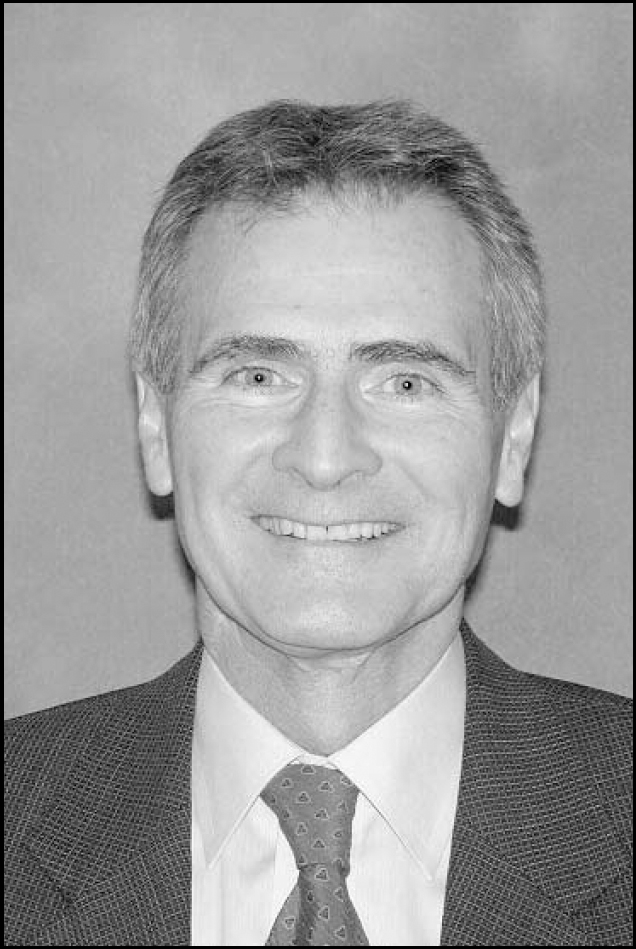
Tom Burns is Professor of Social Psychiatry at Oxford University. He trained in Cambridge and Guy’s Hospital as an undergraduate, and in Dingleton and St George’s Hospital as a post-graduate. His interests include complex care programmes and assertive outreach.
If you were not a psychiatrist, what would you do?
My unrealistic fantasy is to be a French Horn player but, being hopelessly unmusical, that’s unlikely. I started off medicine wanting to be a psychoanalyst but really enjoyed internal medicine on the way. In truth it’s slightly scary that I have no idea what I would do if I weren’t a psychiatrist.
What has been the greatest impact of your profession on you personally?
Meeting my wife. We met in Dingleton Hospital in the Scottish Borders when she was a social therapist over from her social work course in Sweden and I was a registrar.
Do you feel stigmatised by your profession?
Not at all. I remain convinced (deluded?) that it is a valuable, exciting and rather romantic job. Socially I often find people criticising care in the community as a policy but invariably an interest in, and respect for, those of us who do the job.
What are your interests outside of work?
I’m a verbal person - theatre and novels rather than opera and paintings. Never a sportsman, however I do enjoy long walks.
Who was your most influential trainer, and why?
Professor Arthur Crisp. He helped me bring a more rigorous, academic approach to my work without ever minimising the centrality of each individual patient’s psychological world and personal narrative.
What job gave you the most useful training experience?
Undoubtedly my SHO [senior house officer] post with Dan (not Maxwell) Jones in Dingleton. The whole Dingleton community approach has profoundly affected all my subsequent practice. Dan also demonstrated just how important it was to be warm to patients and to take them really seriously as individuals, even if you couldn’t always like them or cure them.
Which book/text has influenced you most?
Would love to say Jaspers but not so. Probably The Divided Self by R. D. Laing - not so much for the content as the sense of excitement and ‘ importance’ of psychiatry. I’m sure the antipsychiatry movement significantly improved recruitment to our profession by making it quite glamorous, albeit controversial.
What part of your work gives you the most satisfaction?
Until recently I would say exclusively direct patient contact. However, I have recently very much enjoyed service planning and development. Research work is invariably rewarding, although not always satisfying.
What do you least enjoy?
Routine mindless administration. Coping with poorly thought-out directives brings out the Colonel Blimp in me. I find mixing and working with colleagues who are cynical or disinterested (and especially those who deny the special responsibilities and rewards that come with our job) difficult.
What is the most promising opportunity facing the profession?
Improved consistency of treatments and good clinical governance.
What is the greatest threat?
Political correctness and abrogating our authority in the longer-term. Some aspects of the proposed new Mental Health Act in the short-term.
Do you think psychiatry is brainless or mindless?
Mindless.
How would you entice more medical students into the profession?
Focusing back on the mind rather than the brain. Recognising and celebrating (rather than denying and feeling embarrassed about) the unique qualities of mental illnesses and the importance of psychotherapeutic skills as the core competence of the profession.
What is the most important advice you could offer to a new trainee?
Make sure you overdo it in the beginning. Don’t be measured or cynical.
What are the main ethical problems that psychiatrists will face in the future?
The new mental health proposals (particularly DSPD [Dangerous People with Severe Personality Disorder Initiative] if it goes through) profoundly undercut the ethical basis of current psychiatric practice. Community care poses complex ethical dilemmas all the time and we need to be more subtle in our understanding of coercion and dependency.
How would you improve clinical psychiatric training?
Psychiatric training is generally very good in the UK. What is missing is a stronger emphasis on psychotherapy (broadly understood) and recognition that the doctor-patient relationship is not a welcome extra to evidence-based practice, but the basis of the job.
How should the role of the Royal College of Psychiatrists change?
I think the College needs to free itself from the tyranny of subspecialties and focus on strengthening the core role of the psychiatrist. I welcome it being more proactive and positive and willing to embrace change. However, it needs to dismantle some of its cumbersome internal structures and processes that interfere with flexibility.
What is the future for psychotherapy in psychiatry training and practice?
It will be obvious that I think it should be central. I believe that the identification of psychotherapy as a subspecialty is an unmitigated disaster (although I fully understood the reasons when it was proposed). Reversing it would be a real test of how the College could face up to the challenges of restoring the image of psychiatry.
What single area of psychiatric research should be given priority?
Psychological and social aspects. However I’m not a fan of micro-management of research.
What single area of psychiatric practice is most in need of development?
Improving the status of, and training in, establishing and maintaining good, trusting therapeutic relationships.





eLetters
No eLetters have been published for this article.